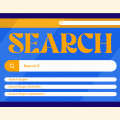Mayor Sylvester Turner joined community leaders Monday to announce the launch of the city's first Interactive Kiosk Experience. Turner said they have placed 25 wayfinding kiosks around the city that will be useful for residents or visitors to explore small and large businesses, show different transportation routes and options, public messaging in real-time about emergency or weather events, surveys, games, and more.
Each kiosk will be equipped with free WiFi access to the public and will serve as a backbone of Houston`s smart city, the mayor said. The kiosks are provided through funds without using the taxpayers' money.
“The City of Houston has so much to offer, and the IKE digital kiosks will be an exciting new amenity to help guide people in various directions to enjoy events, restaurants, and much more,” Mayor Turner said. "These kiosks are one of the many ways Houston is moving forward to create a more walkable space that enables a safer and more enjoyable experience." 8-foot height-displayed in Houston. Some are displayed in Greater Heights.
The city's first interactive kiosk was unveiled at the grand opening ceremony in downtown on Monday to commemorate the partnership with Houston and Ohio-based digital media company IKE Smart City. Four more kiosk locations have been approved by the Houston Public Works and will be set up later this month, according to a spokesman for Mayor Sylvester Turner.
Within a 75-foot radius, the kiosk offers free WiFi and acts as a map, guidebook, public relations center, and digital signage to generate revenue for the city. According to the city's press release, they will be located in commercial pedestrian-facing areas, including underserved areas such as Gulfton and Sunnyside.
“The City of Houston has so much to offer, and the IKE digital kiosks will be an exciting new amenity to help guide people in various directions to enjoy events, restaurants, and much more,” Turner said. “These kiosks are one of the many ways Houston is moving forward with creating more walkable spaces that make for a safer and more pleasant experience.”
The Houston City Council, by a 107 vote, approved a 12 year contract with IKE Smart City last May that calls for between 75 and 125 kiosks to be placed in commercial corridors with high pedestrian traffic. Among the targeted locales is the Greater Heights, according to Mary Benton, a spokesperson for Turner.
Led by the Mayor's Office of Economic Development and with support from the Office of Innovation, this citywide initiative will be rolled out in phases. Mayor Sylvester Turner unveiled the first kiosk at a ribbon-cutting ceremony on Tuesday; a total of 25 kiosks are due to be installed across the city. To bridge equity gaps, 10% of the kiosks will be stationed in underserved neighborhoods.
The IKE (Interactive Kiosk Experience) Smart City kiosks offer a free WiFi hotspot. They will also feature a dual-sided 65” touchscreen that displays digital advertising, location-based informational listings, and interactive applications to promote local businesses and points of interest. The kiosks are multilingual and fully ADA compliant.
To further sustainability efforts, IKE`s wayfinding features will use aggregated public transit data to give citizens access to multimodal trip planning options like public transit, bike share, scooters, ride-hailing, or walking.
The kiosks will also disseminate critical public safety information, city officials said. A real-time feed from the Integrated Public Alert and Warning System and information from over 1,000 authorities certified by the Federal Emergency Management Agency, will ensure that the kiosks immediately display emergency messaging, such as alerts for severe weather warnings, active shooter events, fire warnings, and AMBER Alerts.
Houston is not the first city to install kiosks to support its smart city efforts. Columbus, Ohio, winner of the Transportation Department`s 2016 Smart City Challenge, installed its first IKE kiosk in 2018 and has used them to promote first mile / last mile solutions as it expands its smart mobility hubs.
New York City announced plans to install kiosks as early as 2016 as a replacement for the city`s outdated payphone network; Newark followed suit soon after. The following year, Miami-Dade County, Florida announced an initiative to set up more than 300 digital kiosks to encourage residents to use public transport.
The City of Houston issued an RFP (Request for Proposal) for the Interactive Digital Kiosk in March 2020 and selected IKE Smart City as the vendor in March 2021. It was approved by the city council in May. Once approved, IKE Smart City worked with Houston City, Houston First, Neighboring Groups, and adjacent real estate owners to create site selections, kiosk branding, and screen content.
The installation will take place at 25 kiosk stages in multiple regions such as Downtown, Uptown, Midtown, Montrose, Museum District, Texas Medical Center, Greater Third Ward, EaDo, and Upper Kirby. In addition, at least 10% of all IKE kiosks are located in poorly serviced areas, such as Gulfton and Sunnyside, as defined by the city.
IKE puts innovative technology in commercial, pedestrian-oriented areas to offer advanced wayfinding capabilities through smart city technology. Each kiosk serves as a free WiFi hotspot up to 75` and is geolocated, displaying informational listings based on what`s in immediate proximity to the kiosk.
The kiosks have dual-sided digital touchscreens and are fully ADA-compliant, complete with an engaging suite of interactive applications that drive discovery of area businesses and other local points of interest, promote diverse mobility solutions, and improve equity with 24/7 access to resources.
IKE is multilingual and includes detailed content listings of local area restaurants, shops, businesses, cultural institutions, events, jobs, and civic resources. Additionally, the kiosks provide access to social services information such as homeless shelters, addiction recovery programs, and food support.
Author: Diva Maharani | Illustrator: Akbar Nugroho





